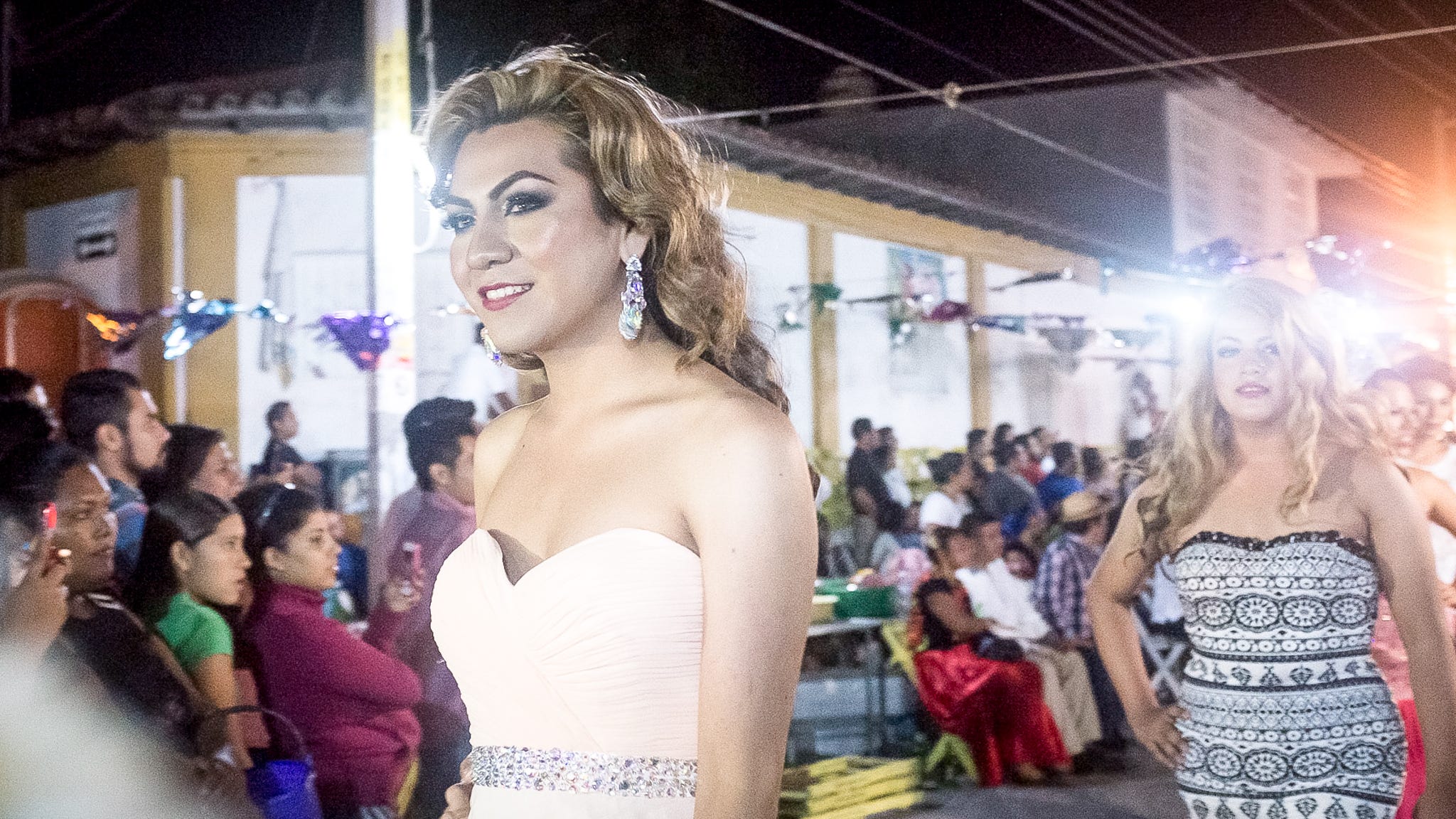In This Mexican City, Trans People Are Celebrated. So Why Do They Feel So Left Out?
The people of Juchitán have long shown love for their gender-bending “muxes.” But beyond the glitz and glamor, some say pageantry is no substitute for equal rights.

Photos by Kevin Milian
As the December sun sets over the terracotta tiled roofs of Juchitán de Zaragoza – a rural town of about 90,000 in the southwest Mexican state of Oaxaca – the streets are empty in silent anticipation. Many of the men who live here have just come back from working at the oil refinery; many women have returned from selling crafts at the marketplace. One man, age thirty, takes off his schoolteacher clothes and showers. When he has dried himself off, he puts on a corset and wig and applies dramatic makeup to contour his face.
“This outfit took me two hours to prepare, with my makeup and clothes and my wig, and my waist-trainer,” he says.
Across town, through the blanched walls of the church and past the bustling marketplace, an older man layers golden necklaces over his starched white button-down, while his maid hands him a pair of black slacks. Elsewhere, a woman pulls on tight pleather shorts and puts pasties on her exposed breasts, preparing for a performance. Skin …

